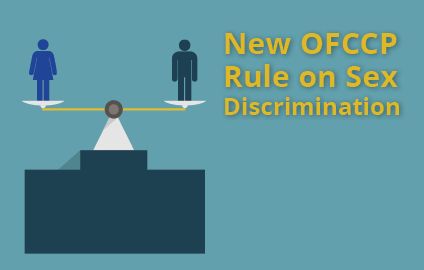Sex Discrimination Rules for Federal Contractors Updated

The U.S. Department of Labor has published new sex discrimination regulations that update—for the first time in over 40 years— the department’s interpretation of Executive Order 11246 to reflect the current state of the law and the reality of a modern and diverse workforce.
Signed by President Johnson in 1965, Executive Order 11246 prohibits companies with federal contracts and subcontracts from discriminating in employment on the basis of sex, granted supervision of federal contract compliance to the secretary of labor, and created the Labor Department’s first Office of Federal Contract Compliance Programs.

The final rule, which became effective Aug. 15, 2016, updates OFCCP’s sex discrimination regulations, which have not been substantively updated since 1970.
It aligns them with current law and legal principles and addresses their application to contemporary workplace practices and issues. It also articulates well-established case law and/or applicable requirements from other federal agencies, and therefore the requirements for affected entities are largely unchanged by the rule.
In addition, the final rule makes explicit the protections against compensation discrimination; sexually hostile work environments; discrimination based on pregnancy, childbirth, or related medical conditions; and discrimination based on unlawful sex stereotypes, gender identity, and transgender status.
The regulations also promote fair pay practices.
Other Forms of Discrimination
In addition to Executive Order 11246, OFCCP enforces Section 503 of the Rehabilitation Act of 1973 and the Vietnam Era Veterans’ Readjustment Assistance Act of 1974.
These laws, as amended, make it illegal for contractors and subcontractors doing business with the federal government to discriminate in employment because of race, color, religion, sex, sexual orientation, gender identity, national origin, disability, or status as a protected veteran.
In addition, contractors and subcontractors are prohibited from discriminating against applicants or employees because they have inquired about, discussed, or disclosed their compensation or that of others, subject to certain limitations.
RELATED
EXPLORE BY CATEGORY
Stay Connected with CBIA News Digests
The latest news and information delivered directly to your inbox.


